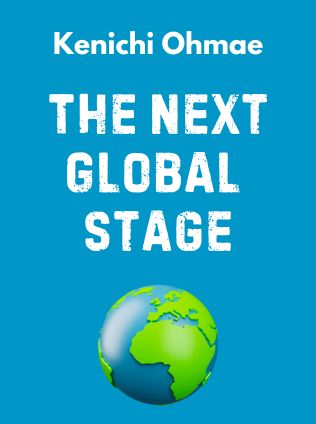
The Next Global Stage
Boundless Opportunities in the Borderless Economy
By Kenichi Ohmae
Published 01/2005
About the Author
Kenichi Ohmae, a renowned business and corporate strategist, has been at the forefront of understanding and forecasting global economic trends. His profound insights have been captured in more than 100 books, including significant works like The Borderless World, The End of the Nation State, and The Invisible Continent. Ohmae's expertise lies in synthesizing complex economic changes into actionable strategies for businesses, governments, and individuals.
Main Idea
The Next Global Stage delves into the transformative shifts shaping our world from the remnants of yesterday's nation-based economic systems. Ohmae posits that success in the modern era requires embracing the global stage, leveraging new economic drivers, and understanding the dynamics of region-states. He illustrates how China exemplifies this new paradigm and provides a practical blueprint for thriving in this interconnected world.
Table of Contents
- What is the Global Economy?
- Opening Night
- The End of Economics
- Playmakers
- Platforms for Progress
- Breaking the Chains
- Reinventing Government
- The Futures Market
- The Next Stage
In-Depth Analysis
What is the Global Economy?
The global economy is characterized by its borderless nature, where national borders are no longer significant barriers to business operations. Ohmae highlights Ireland's transformation from a rural economy to an "e-hub of Europe" as a prime example of leveraging new trends in the global economy. He underscores four innate characteristics of the global economy: borderless, invisible, cyber-connected, and measured in multiples.
“The world has attained the position of being effectively without borders.” – Kenichi Ohmae
Ireland's success story illustrates how nations and regions can capitalize on global trends by creating conducive environments for foreign direct investment and leveraging technological advancements. The shift from traditional physical geography to cybertechnology has enabled regions like Ireland to thrive in the global marketplace.
- Borderless: National borders are less significant in business operations.
- Invisible: Economic activities often occur digitally, beyond the visible realm.
- Cyber-Connected: Rapid data transfer is crucial for the global economy.
- Measured in Multiples: Financial valuations often reflect expectations rather than current value.
Opening Night
The pivotal year of 1985 marked significant milestones in the global economy. The rise of Mikhail Gorbachev, the creation of the Plaza Accord, and the launch of Microsoft Windows were transformative events. Ohmae emphasizes China's rapid economic development, which compressed centuries of industrial growth into mere decades.
Sign up for FREE and get access to 1,400+ books summaries.
You May Also Like
Rich Dad Poor Dad
What the Rich Teach Their Kids About Money - That the Poor and Middle Class Do Not!
By Robert T. KiyosakiFreakonomics
A Rogue Economist Explores the Hidden Side of Everything
By Steven D. Levitt and Stephen J. DubnerI Am Malala
The Story of the Girl Who Stood Up for Education and Was Shot by the Taliban
By Malala YousafzaiThe Lean Startup
How Today's Entrepreneurs Use Continuous Innovation to Create Radically Successful Businesses
By Eric RiesWho Moved My Cheese?
An Amazing Way to Deal with Change in Your Work and in Your Life
By Spencer Johnson, M.D.Factfulness
Ten Reasons We're Wrong About the World – and Why Things Are Better Than You Think
By Hans Rosling



















